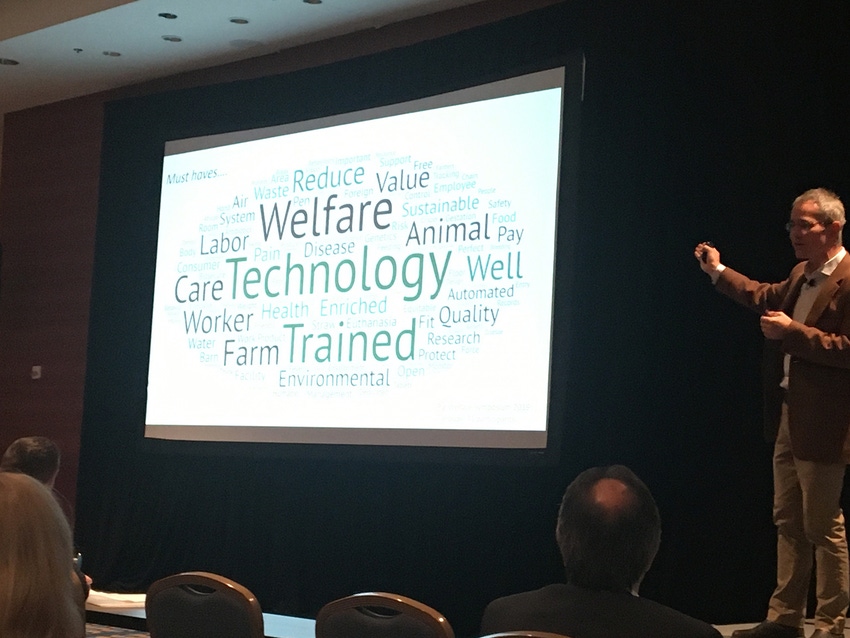During the Pig Welfare Symposium, focus group participants shared their vision for pork production in 2050.

It's 2050 and you want to pass the farm down to your grandchildren. In an ideal world, what does that farm look like?
That's the question Dan Weary and Nina von Keyserlingk, both professors in the Animal Welfare Program at the University of British Columbia, posed to 31 participants during seven focus group sessions held during the 2109 Pig Welfare Symposium.
Practices common on farms across North America are increasingly subject to criticism by consumers, citizens and other stakeholders. While closing the barn doors erodes trust, one-way educational efforts are also likely to fail. Sustained two-way engagement can help, however, Weary and von Keyserlingk say the industry first needs to articulate core values and develop a corresponding vision.
The exercise was framed around three questions.
What characteristics would you consider to be "must haves" in order for your grandchildren to want to take over the farm?
Are there farm characteristics common today that you think would make farming less attractive for your grandchildren?
What do we need to do to achieve your vision for this future farm?
Popular answers for the "must have" characteristics were more technology and on-farm training, an enriched environment, improved care worker programs and better facilities.
To Question 2, answers ranged from the facility design and air quality to untrained staff and not enough regulation to keep "bad actors out."
For the last question — what do we need to do to achieve this vision for the future farm — answers were that it needs to be industry led and research driven. There needs to be openness to change and improved stakeholder connections. Education needs to happen among the public, farmers and the industry, and there needs to be more engagement between the consumer and the industry. Finally, there needs to be an industry consensus of values.
While none of the answers were very surprising to the professors, von Keyserlingk says it was a great statement that many of the answers revolved around the efforts being industry led.
"I think as an industry, you all need to be part of this conversation because otherwise somebody else is going to control the narrative. You need to come together and identify your core values and develop a corresponding vision. What is your vision of the ideal pig farm in the future and how are you going to get there?" von Keyserlingk says. "What is likely not going to work when someone criticizes you is to simply try to educate them or say, 'I'm sorry, but you just don't understand my business.'"
Weary says these types of conversations may be uncomfortable for producers but need to happen if they are going to pass that ideal farm over in 2050.
"If the swine industry really wants to develop that narrative of who you are, then we need to get over the shyness of talking about what our core values are, and instead begin the conversations that seek consensus on these core values and then implement industry practices consistent what we believe in," Weary says.
About the Author(s)
You May Also Like





